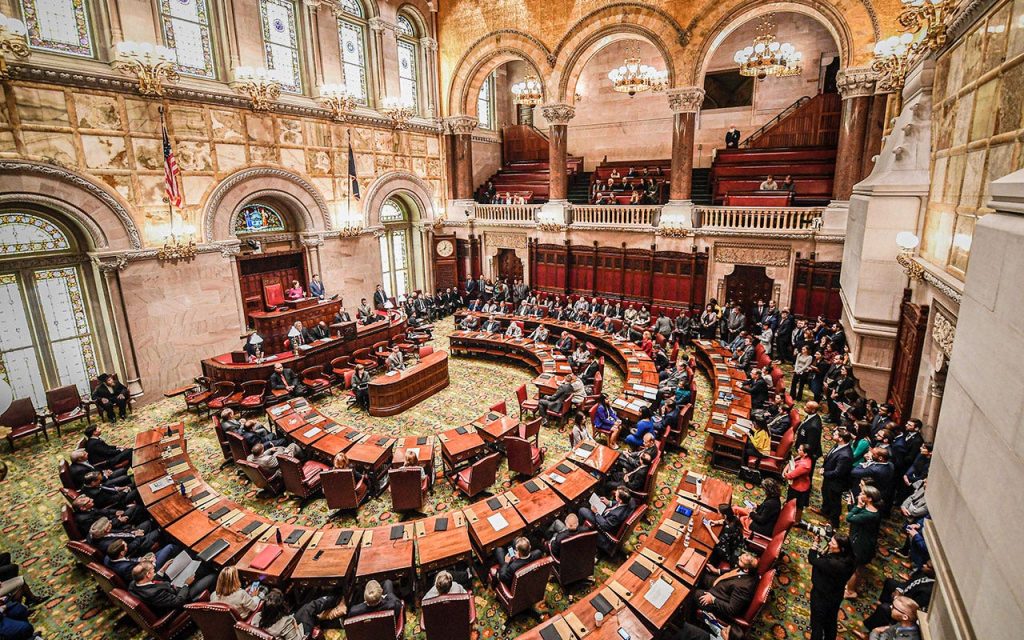A federal appeals court in Manhattan has permitted New York to enforce a law mandating that internet service providers offer discounted rates to low-income residents, overturning a previous ruling that had prevented the policy from taking effect. This law would require internet companies to offer broadband services to low-income New Yorkers for as low as $15 per month, or face fines from the state. Telecoms trade groups brought a lawsuit against the law, claiming it would impose significant financial burdens on them and unlawfully override a federal law regulating internet service. Despite their disappointment with the court’s decision, the industry groups are considering their next steps in response to the ruling.
New York lawmakers enacted this law in 2021 as part of the budget, with proponents arguing that it would provide a crucial means for low-income individuals to access the internet, which has become an essential utility in today’s society. The court’s decision to uphold the law allows for increased access to broadband services for those who may not be able to afford standard rates. Yet, opponents of the law criticize the potential negative impact on the industry’s investment in national infrastructure and the operational sustainability of broadband services in various areas. Ultimately, this ruling emphasizes the importance of balancing the needs of low-income consumers with the concerns of industry stakeholders in the telecommunications sector.
The tension between state regulations and federal laws governing internet service providers continues to fuel debates and legal challenges in this rapidly evolving industry. The court’s ruling in favor of New York’s discounted broadband law highlights the state’s commitment to addressing the digital divide and ensuring equitable access to essential services for all residents, regardless of their socioeconomic status. In response to the industry groups’ concerns about the financial implications and regulatory uncertainties posed by this law, it is essential for policymakers and stakeholders to engage in constructive dialogue to find viable solutions that both expand access to affordable internet services and support the long-term viability of broadband operations.
As the digital landscape evolves and technological advancements continue to reshape how individuals access information and communicate online, the role of government regulations in ensuring fair and equal access to broadband services becomes increasingly vital. By implementing policies that promote affordability and accessibility for marginalized communities, states like New York are taking proactive steps to bridge the digital divide and foster digital inclusion for all residents. While the court’s decision to uphold the discounted broadband law may face further legal challenges and industry pushback, it underscores the importance of balancing regulatory measures with market competition to create a more inclusive and sustainable internet ecosystem for all users.
Moving forward, policymakers, industry stakeholders, and consumer advocates must collaborate to develop innovative solutions that address the complex challenges facing the telecommunications sector while safeguarding the interests of low-income consumers and promoting equitable access to essential online services. By engaging in meaningful dialogue and exploring collaborative approaches to bridge the digital divide, states can create policies that support economic growth, social equity, and digital inclusion for all residents. The court’s ruling in favor of New York’s discounted broadband law sets a precedent for other states to explore similar initiatives aimed at expanding internet access for underserved populations and promoting digital equity in an increasingly interconnected world.
In conclusion, the federal appeals court’s decision to uphold New York’s discounted broadband law signals a significant step towards addressing inequities in internet access and promoting digital inclusion for low-income residents. While the telecoms trade groups may continue to challenge the law, the court’s ruling underscores the importance of prioritizing affordability and accessibility in expanding broadband services to underserved communities. By championing policies that prioritize equity and promote universal access to essential services, states can bridge the digital divide, foster economic growth, and create a more inclusive digital future for all individuals.


